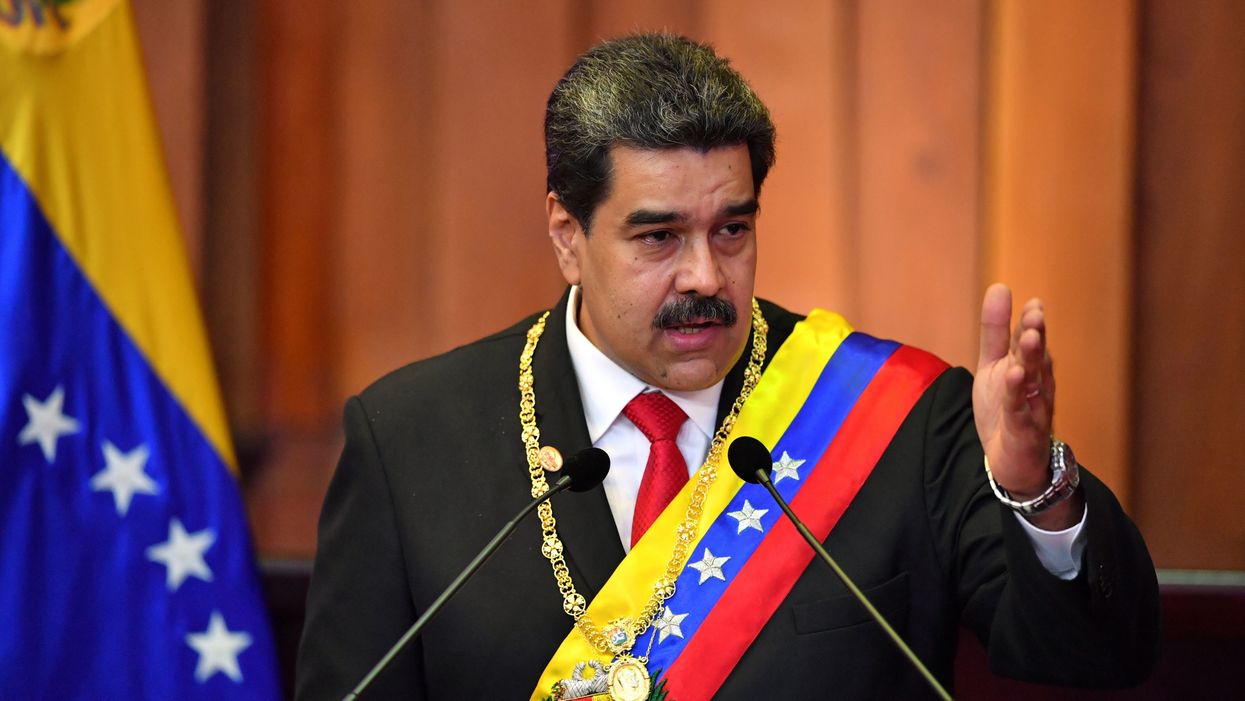
YURI CORTEZ/AFP/Getty Images

Pompeo promised that the US is committed to restoring democracy in Venezuela
On Thursday, Secretary of State Mike Pompeo called out Venezuelan leaders for allowing Venezuelan dictator Nicolás Maduro to be sworn for a second term after a sham election.
This came just three days after a former judge on Venezuela's Supreme Court who's seeking asylum in the U.S. spoke out against the regime and testified that the election was illegitimate.
Venezuela's economy has been collapsing for several years due to a combination of falling oil prices and socialist policies. Many Venezuelans have resorted to eating food thrown away in the trash, but even this has become scarce.
On Thursday, Pompeo said:
The United States condemns Maduro's illegitimate usurpation of power today following the unfree and unfair elections he imposed on the Venezuelan people on May 20, 2018. The United States remains steadfast in its support of the Venezuelan people and will continue to use the full weight of U.S. economic and diplomatic power to press for the restoration of Venezuelan democracy.
He expressed U.S. support for Venezuela's National Assembly, which he called the "only legitimate branch of government duly elected by the Venezuelan people." He called on Venezuela to "begin a transitional process that can restore the constitutional, democratic order by holding free and fair elections that respect the will of the Venezuelan people."
He concluded that it was "time to convince the Maduro dictatorship that the moment has arrived for democracy to return to Venezuela."
On Monday, former Venezuelan Supreme Court Judge Tyrone Zerpa held a news conference at a library in Orlando, Florida. According to the Orlando Sentinel, Zerpa told those gathered that Maduro was "an illegitimate president."
Zerpa fled Venezuela with his wife and two daughters in December and has been branded a political dissident by the Venezuelan government. He is currently seeking political asylum for himself and his family in the United States.
"The elections that he supposedly won weren't free elections, nor competitive, nor [did] they preserve the principles that guide the organization of an electoral process," Zerpa said. "It made no sense for the elections to continue, yet [the Maduro administration] moved them forward."